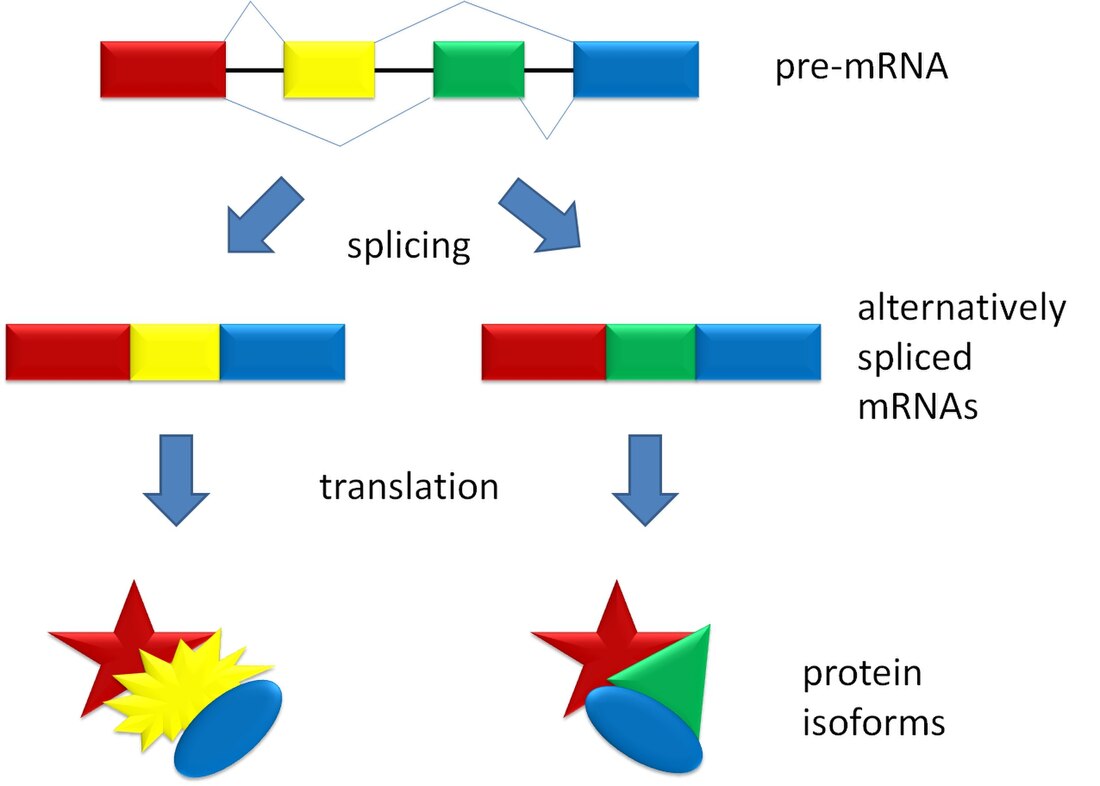Alternative splicing
process of generating multiple mRNA molecules from a given set of exons by differential use of exons from the primary transcript(s), to form multiple mature mRNAs From Wikipedia, the free encyclopedia
Alternative splicing allows DNA to code for more than one protein. It varies the exon make-up of the messenger RNA.


In alternative splicing the exons of the pre-messenger RNA produced by transcription are reconnected in different ways during RNA splicing.
This produces different mature messenger RNAs from the same gene. They get translated into different proteins. Thus, a single gene may code for multiple proteins.[1]
Alternative splicing is normal in eukaryotes. It greatly increases the diversity of proteins that can be encoded by the genome.[1] In humans, ~95% of multiexonic genes are alternatively spliced.[2][3][4]
There are various kinds of alternative splicing: the most common is exon skipping. An exon may be included in mRNAs under some conditions or in particular tissues, and omitted from the mRNA in others.[1] There are splicing activators that promote the use of a particular splice site, and splicing repressors that reduce the use of a particular site. New types of alternative splicing are being found.[4][5]
Abnormal variations in splicing occur in disease. Many human genetic disorders come from splicing variants.[4] Abnormal splicing variants may also contribute to the development of cancer.[6][7][8] High-throughput sequencing of RNA can for example be used to measure the genome-scale amount of deviating alternative splicing, such as in a cohort of colorectal cancers, where high amount of aberrant splicing was associated to poor patient survival.[9] Non-working splicing products are usually dealt with by post-transcriptional quality control.[10] That is, they are chopped up by enzymes.
Source of diversity
Alternative splicing (the re-combination of different exons) is a major source of genetic diversity in eukaryotes. One particular Drosophila gene (DSCAM) can be alternatively spliced into 38,000 different mRNA.[11]
Related pages
References
Wikiwand - on
Seamless Wikipedia browsing. On steroids.
